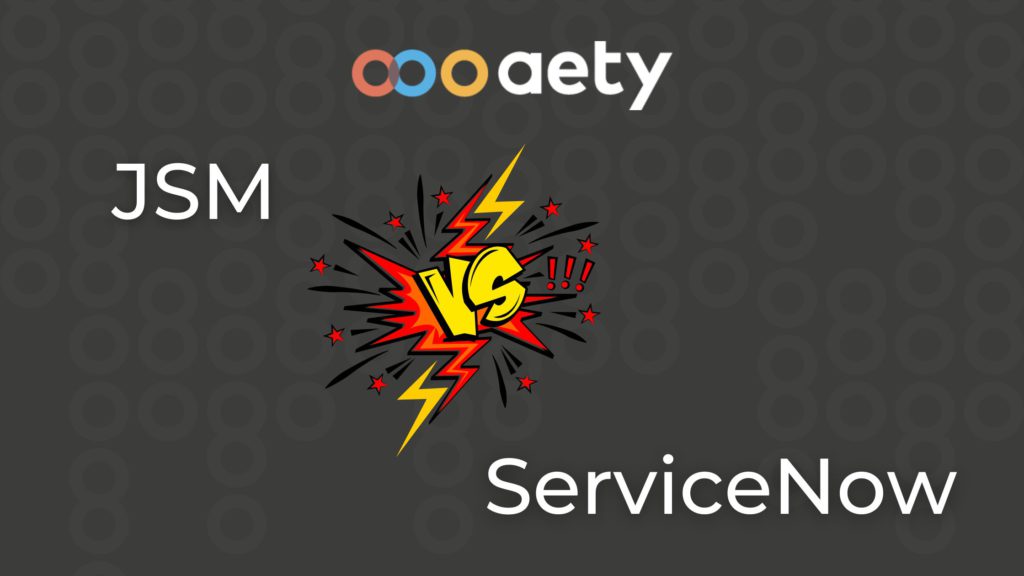What is Jira Service Management?
Jira Service Management was developed by Atlassian and is an Enterprise Service Management solution that makes it easy to handle and prioritize incoming inquiries. Jira Service Management is primarily used as an ITSM system but can also be used by other departments, such as HR, Law, and finance. The essential thing is that you work in a function where a service is delivered to several end users. With over 3,000 apps in Atlassian’s Marketplace, it is possible to extend Jira Service Management to support your specific needs.
ServiceNow is the market-leading Enterprise Service Management solution that provides companies with a central database to manage digital workflows. ServiceNow contains several ready-made modules that can be purchased, and with the help of workflow automation, companies can improve and streamline their operations by automating routine work tasks.
Line is our skilled Atlassian consultant who works with Jira Service Management and Jira Software with a focus on improving and supporting work processes for our customers. Line has previously been employed as a ServiceNow consultant, which, particularly within Service Management, is a competing product to Jira Service Management. Since Line’s hiring back in February, our ITSM brain has been itching to learn more about ServiceNow and how the product differs from working with Jira Service Management. We finally got the opportunity to interview Line, and you shouldn’t miss it!
This conversation must be seen in light of Gartner’s latest report on the ITSM market, where ServiceNow is still positioned as the market-leading platform. Jira Service Management is placed in the visionary category and is assessed to be the fastest growing platform on the ITSM market by all of Gartner’s evaluated candidates, source.
What was it working with ServiceNow?
Before working with ServiceNow, I had no knowledge of configurable and adjustable enterprise platforms. In retrospect, working with ServiceNow was a little more complex than working today with Jira Service Management. ServiceNow comes with a standardized process that can be good to follow but also allows for adjustments. If you do not follow the process ServiceNow sets out, it may be necessary to adapt and get the ideal out of the platform. ServiceNow has many modules that can each do something different. Still, it requires extensive domain knowledge and slightly more development skills than it does in Jira Service Management, where a more significant part of the platform can be customized without knowledge of code.
“One of the big differences is making collaboration across the organization very easy. It is not as easy in ServiceNow. Jira operates with a project concept, where a project, regardless of business purpose, is a container of task types, workflows, and other setups. It allows to a greater extent that we work with different processes and value chains, but have the opportunity to share information easily and without problems.”
Line Holm Christensen, Consultant in aety
Had you heard of Atlassian’s products before you started at aety?
Yes, I had, and I had even worked in Jira and Confluence. Before I started at aety, I worked in a large Danish financial organization as a business analyst in an agile team, where Jira and Confluence supported the company’s agile processes. After working as a ServiceNow consultant, I wanted to try the “other side,” and I wanted a role with a greater focus on business and processes. I quickly found that I was more interested in everything outside of the product development itself: How do we (collaborate), how do we develop, and not least, how can our tool support it? The fun part of my work in the Danish financial organization was being allowed to test Jira and adjust according to the team’s needs. At the same time, I am very passionate about agile principles, so being able to support it with tools was my clear motivation for applying to Aety.
You are now eight months into your role as an Atlassian consultant. What has been the most different about working on this platform as opposed to ServiceNow?
I realized how easily accessible it is to configure usable solutions in Jira Service Management. Implementing solutions without scripting and coding gives me greater security than when I worked in ServiceNow, where all implementations required much coding. I am more in control of Jira and feel more involved with the customers. They quickly get to know the platform and are less dependent on us consultants as development competence but more as advisors around best practices. This shows that Jira is mainly set up as a collaboration platform that must be easy to access rather than a complicated and heavy IT system that requires extensive procedures for development.
Another thing that is different about Jira Service Management as opposed to ServiceNow is the user administration. Once a user has application access in Jira, the information is freely available, and users’ access and authorizations are then restricted at various levels. You, therefore, do not have to have unique access to all possible modules. I think that it is better with an open platform because it creates more flexibility. Still, of course, it also requires that you have reasonable control over governance and create traceability with an appropriate setup. Otherwise, it isn’t easy to maintain.
What do you like the most about Jira Service Management?
What I like best about Jira Service Management is that the platform comes with standardized workflows that are very straightforward to change. JSM follows the ITIL processes, allows for flexibility depending on the project, and we can adjust the workflow as needed. It is easy to see when it is about standard functionality and when we have to search the marketplace for extensions. An evident strength that appeals to me is that Jira Service Management, with its embedded best practice, makes us smarter, adjusts our way of working, and improves collaboration across the organization. At the same time, Jira Service Management can be used by all departments that provide a service to their employees or customers, connecting business and IT.
What do you like the most about ServiceNow?
I liked that you worked in update sets, that way, I had control over the updates I made. When I pushed updates, I was more or less sure that everything came. In other words, the updates were stored together and could be moved together. That way, it was easier to track all updates and documentation.
The difference between Jira Service Management and ServiceNow?
One of the significant differences is allowing collaboration across the organization. ServiceNow does not allow collaboration to the same degree as Jira. With their project concept, which should be seen as a container of tasks with a specific setup, Jira will enable us to work in different processes and value chains. Information can be easily and seamlessly shared between these projects. The platform accommodates different ways of working. We can have a standard platform there allows the flexibility different teams need. There is also a big difference between Jira Service Management and ServiceNow implementation. Jira’s flexibility and low-code approach make Jira very user-friendly and intuitive, making it easier to educate customers and enable them to train each other internally. It just requires a little understanding of how the platform is structured. At the same time, Jira guides you through the setup using configuration automation which means you don’t need a whole lot of technical understanding.
3 advantages of JSM according to Line:
Jira Service Management is easy to deploy, configure and manage. Jira Service Management allows collaboration across the organization to a greater extent. Jira Service Management is an open platform that shares information.
3 advantages of ServiceNow according to Line:
ServiceNow has a good work structure regarding updates in update sets. ServiceNow has complete standard products where no coding is needed. ServiceNow has a structured learning environment that makes it easy to acquire knowledge.
3 advantages of JSM according to Line:
- Jira Service Management is easy to deploy, configure and manage.
- Jira Service Management allows collaboration across the organization to a greater extent.
- Jira Service Management is an open platform that shares information.
3 advantages of ServiceNow according to Line:
- ServiceNow has a good work structure regarding updates in update sets.
- ServiceNow has complete standard products where no coding is needed.
- ServiceNow has a structured learning environment that makes it easy to acquire knowledge.
If you want to know more about Jira Service Management and how the platform can benefit your company, don’t hesitate to contact us at info@aety.io or +45 70 70 72 71.






